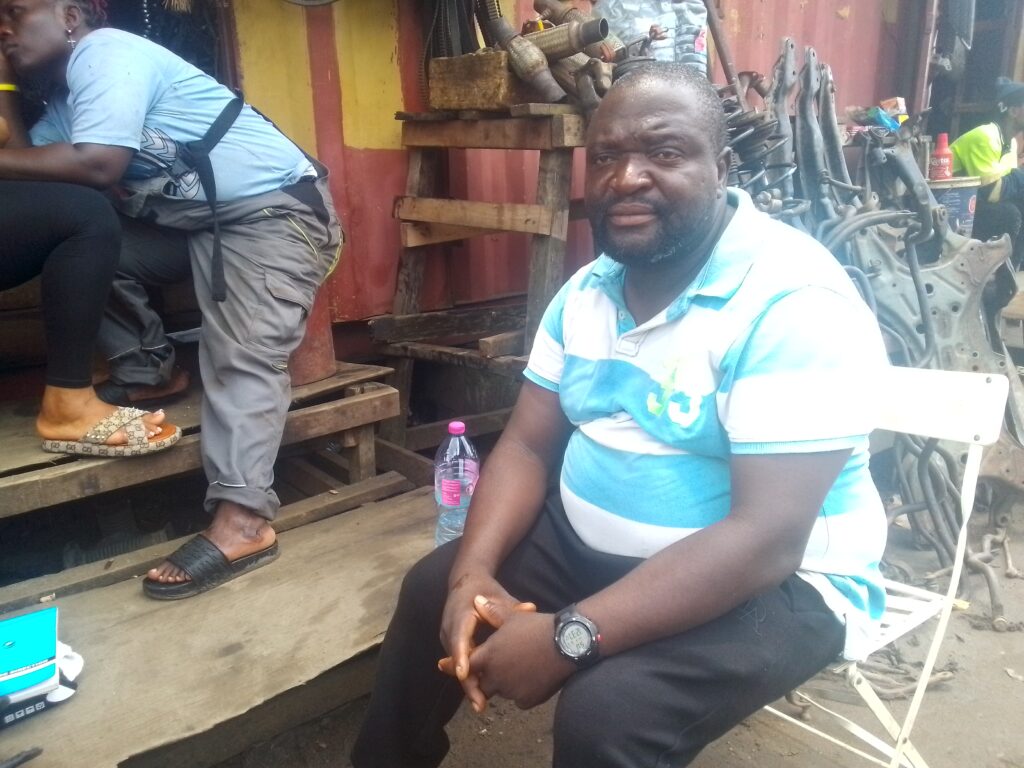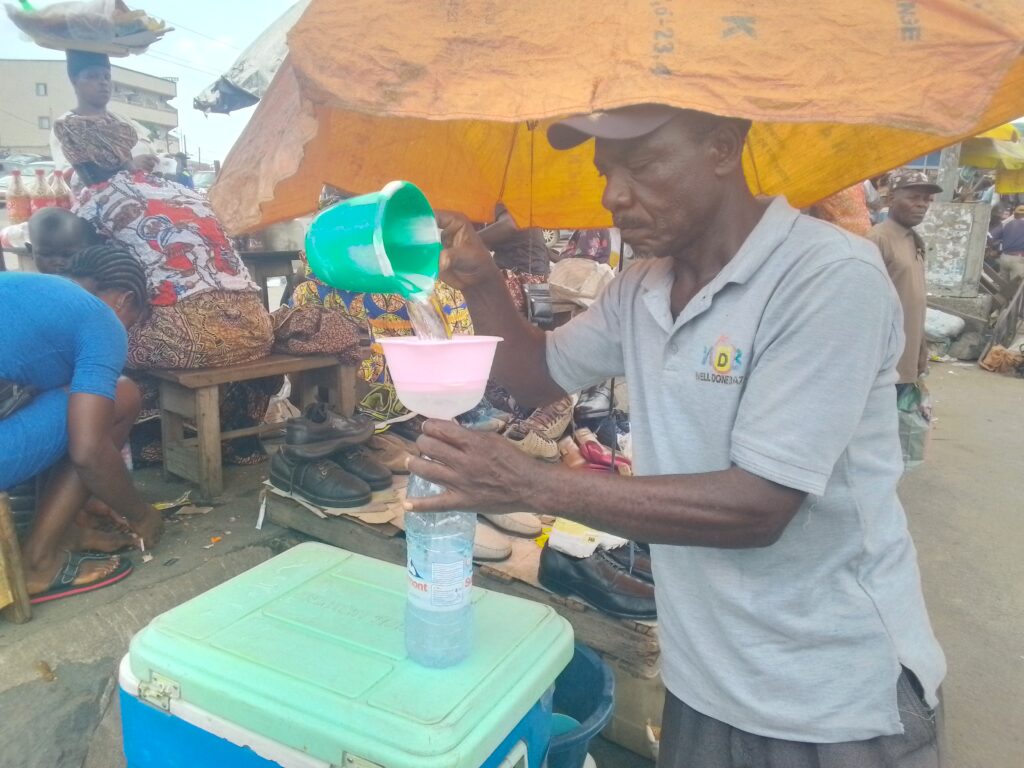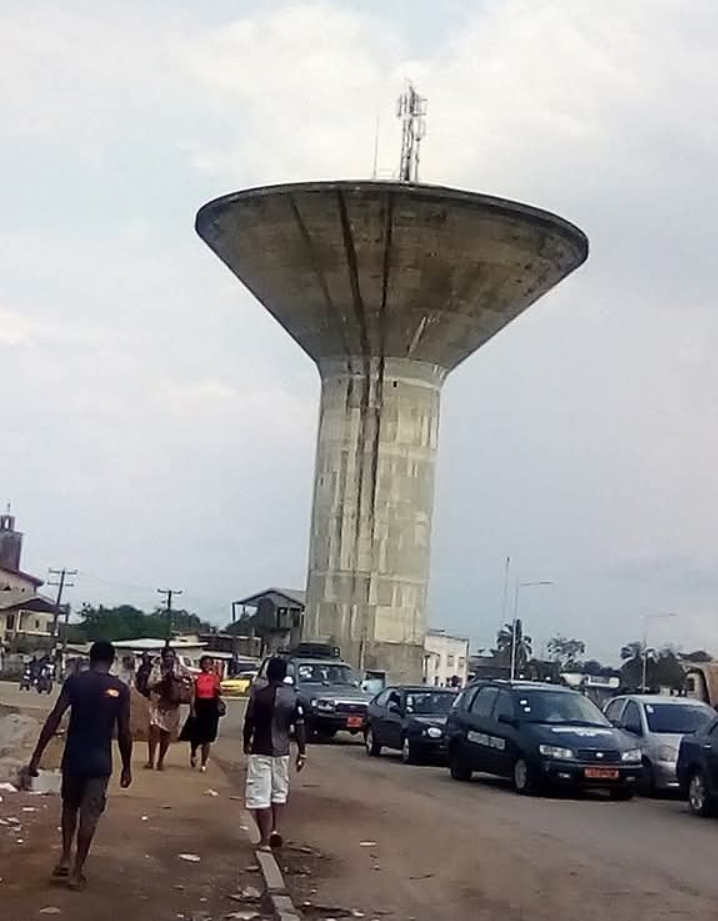As the world celebrated World Water Day on March 22nd, Cameroonians joined in to raise awareness about the importance of access to clean water. In Douala, Cameroon’s economic capital, residents face significant challenges in accessing potable water. We spoke to two city dwellers, Joseph Nguma, a Motor Spare part dealer, and Baloh James Atema, a water and shoes vendor, to hear their stories and opinions on the matter.
For Joseph Nguma, accessing clean drinking water is a daily struggle. “There’s water everywhere, but getting drinkable water is a problem,” he lamented. Nguma spends around 2,000 francs per day on water, buying from vendors like Supermont, Opur, who produced 1.5-liter bottles of water. He expressed frustration with the lack of access to clean water, despite the city’s abundance of water sources.

When asked about preserving water bodies, Nguma explained that Douala’s swampy terrain makes it difficult to find clean water. “Anywhere you dig, you’ll find water, but it’s not clean for consumption,” he said. He suggested that learning from experts who teach water purification methods could be a solution.
Baloh James Atema, a water vendor, shared his experience selling water in front of CONGELCAM in Gare-routière Bonaberi. Atema sells over 120 liters of water per day, mostly to drivers and travelers who prefer the convenience of buying from him rather than purchasing expensive bottled water. His primary source of water is the public tap, where the water is treated.

Atema’s customers are satisfied with his services, and he earns around 3,000 francs per day. However, he acknowledged that accessing clean water remains a challenge for many residents.
As Cameroon celebrates World Water Day, it is clear that much work needs to be done to ensure access to clean water for all residents. The stories of Joseph Nguma and Baloh James Atema highlight the struggles and solutions that exist in Douala. As Nguma emphasized, “Water is life, so they should prioritize it.”
The government and relevant authorities must take heed of these concerns and work towards improving the water system in Douala. By doing so, they can ensure that residents have access to clean, potable water, and improve the overall quality of life in the city.
By Betrand Ntumnyuy

